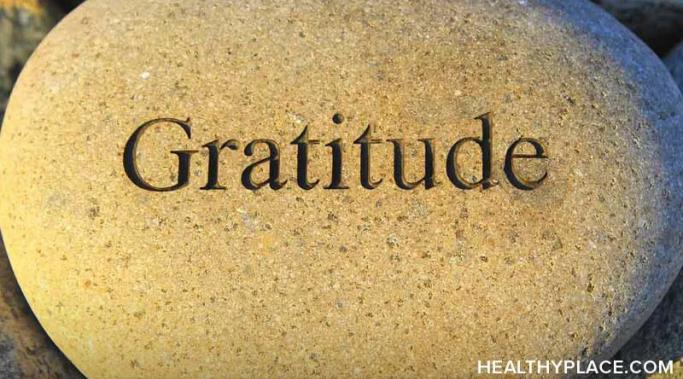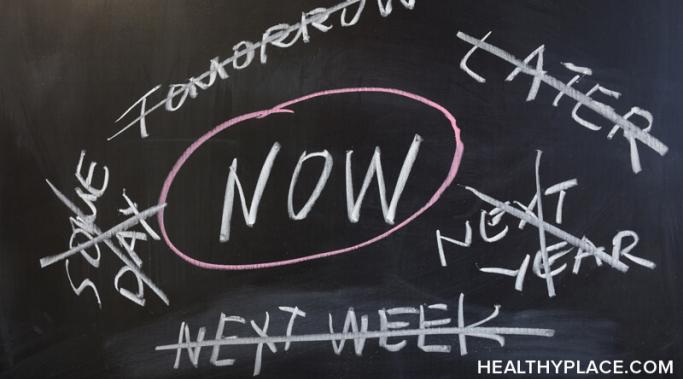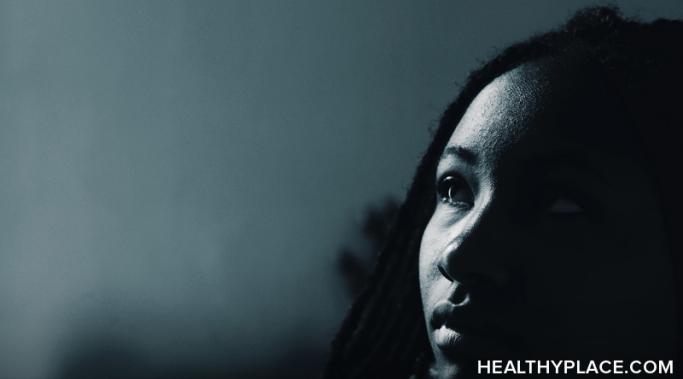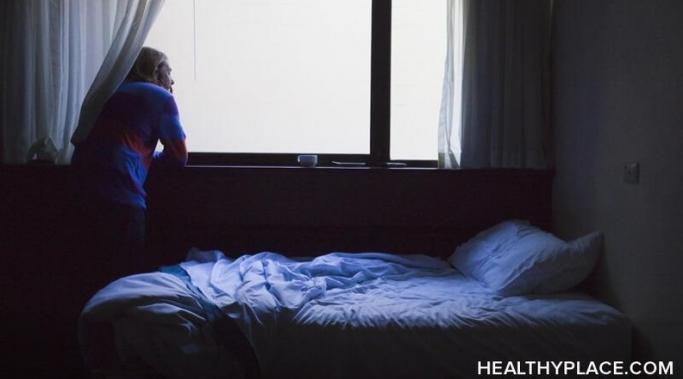Blogs
With Thanksgiving just a few weeks away, many people are talking about things they are thankful for. While giving thanks might be easy for some people, others have a hard time with it. One thing that helps me is creating a gratitude list. To learn about how to create a gratitude list, read on.
Planning for the future feels impossible when you're not sure if it will happen. Last week was my 26th birthday. For the longest time, I did not even imagine that I would live this long. Therefore, I spent many years stuck in my feelings and not making future plans.
My attention-deficit/hyperactivity disorder (ADHD) diagnosis should have been a bipolar disorder diagnosis. I've thought I lived with ADHD for 14 years. Here's my story.
"Feeling the fear" as an adult is much different from what our caregivers told us. How often did you hear someone tell you not to be afraid when you were growing up? Your parents likely said you don't need to be afraid of the dark when you went to bed. Maybe a coach encouraged you not to be fearful about trying a new skill. Did your teacher ever tell you not to be afraid to speak up in class?
I've been in recovery for years now, and it never ceases to amaze me how impactful and effective a supportive community can be when fighting your addictions. Maintaining a close-knit community throughout 2020 has been especially challenging due to the highly infectious disease of COVID-19 and so many groups and gatherings being highly limited or canceled altogether. Because of this unfortunate turn of events, recovering addicts are forced to be extra creative and intentional in order to hold themselves accountable and seek support in their communities.
We are living in an age of unprecedented mental health awareness and mental illness empathy. Mental health stigma is decreasing. Mental health charities, awareness campaigns, and changes to the law in the last 10 years have created a social landscape where people feel much safer talking about their problems without the fear of being mocked, abused, and alienated. As someone with a mental illness, you would think I'd be thrilled by this, but the truth is that up until quite recently, I resented it.
Anxiety and uncertainty seem to be at an all-time high. Some are experiencing problematic anxiety (anxious thoughts, emotions, and physical symptoms that interfere in daily life) for the first time, while others who have lived with it, including those with anxiety disorders, are finding that their symptoms continue to worsen. While there are no quick fixes for anxiety (and anxiety itself is part of the human condition), I offer you here a way to reduce anxiety and create inner peace in spite of all the uncertainty around us.
First off, I want to clarify that depression and victim mentality are not the same. The former is a mental illness that no one can choose, while the latter is a mindset that may or may not be a choice. That said, victim mentality does play a role in depression, which is why it is crucial to identify and manage it.
Many people experience both anxiety and depression, and I'm one of them. About a month ago, I had what’s called a major depressive episode. Though I am not at my lowest point anymore, I am still dealing with the aftereffects of that episode and probably will for some time. This is not the first time I’ve had to deal with such an episode, so I think it is appropriate to devote an entry to attempt to come to terms with it. Please forgive me if I don’t sound enthused; my drive continues to be shot. Despite that, I will do the best I can.
It's 7 A.M., my alarm goes off, and I can't get out of bed this morning. Some days, when I'm feeling really ambitious, I hit "snooze" and crawl out of my covers nine minutes later. Most days, however, I turn off the alarm and return to the safety of my slumber. When I finally wake up hours later, to afternoon sunshine forcing its way through my eyelids, I feel disoriented, disappointed, and dysfunctional. I wonder why I can't leave my bed.









